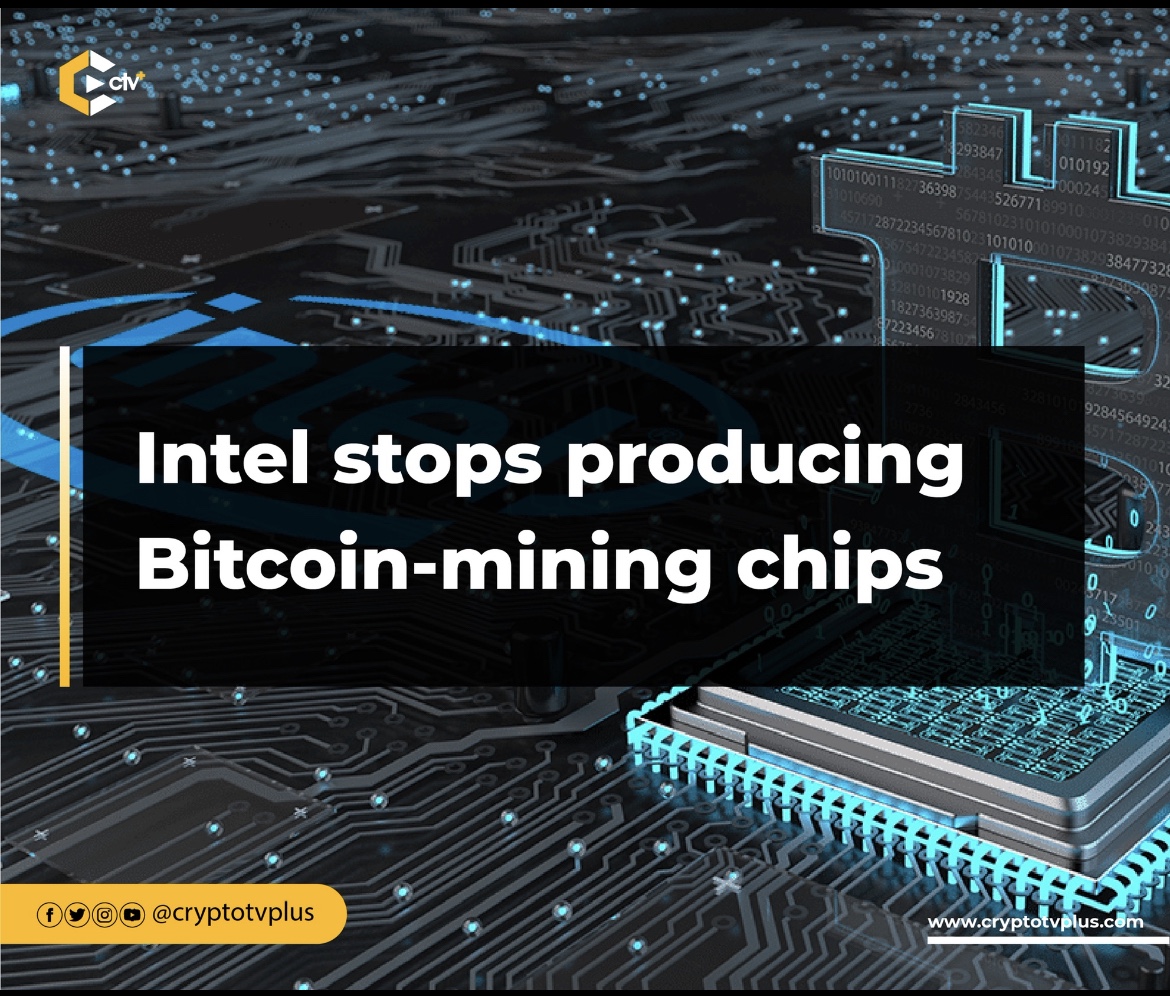News
Intel stops producing Bitcoin-mining chips

Just one year after Intel’s Blockscale ASICs for Bitcoin mining were launched, the company declared the halt of its first-generation Blockscale 1000-series chips without hinting at the possibility of making subsequent generations of the chips.
Explaining this decision, the company revealed that they prioritize their investments in IDM 2.0 which has made them draw the curtain on Intel Blockscale 1000 Series ASIC adding that they will continue to support their Blockscale customers.
As a common refrain in many of its comments as it has abandoned various businesses during corporate-wide cost-cutting, Intel’s statement cites the company’s increased focus on its IDM 2.0 activities as the rationale for terminating the Blockscale ASICs.
When asked by Tom’s Hardware if it will end its Bitcoin ASIC business entirely, Intel revealed that it will continue to monitor market opportunities.
Although Intel hasn’t made any next-generation Bitcoin mining hardware announcements and all of its Blockscale ASIC landing pages are currently inactive, its remark suggests that it is leaving the door open for potential prospects if they materialize.
Intel’s initial entry into the market for bitcoin-mining chips came at a bad time, as its chips finally became available right as Bitcoin valuations crashed at the end of the previous crypto craze, and Intel’s apparent exit from the market comes at a time when Bitcoin is on the upswing — it recently cleared $30,000 for the first time in nearly a year.
Intel’s Bitcoin-mining chips first gained attention under the codename Bonanza Mine, which it used for its research and development (R&D) chips that were never commercialized. However, the company later declared its intention to enter the blockchain market and swiftly launched a second-gen model with the name “Blockscale” to a select group of large-scale mining firms, including BLOCK, GRIID Infrastructure, and Argo Blockchain.
Apart from its extremely competitive performance in comparison to other Bitcoin mining chips, Blockscale’s main selling point was the dependability of Intel’s chip-fab resources. To avoid the volatility with most Chinese manufacturers that engaged in wild price manipulations based on Bitcoin valuations, were subject to tariffs, and suffered from supply disruptions and shortages, not to mention the increased costs of logistics and shipping from China, several large industrial mining companies signed large long-term deals for a steady supply of Blockscale ASICs.
In fulfilling its current long-term commitments, Intel will keep providing its current Boockscale customers with services. Customers can place orders for new Intel processors until October 2023, and shipments will stop in April 2024. The landing and product pages for the Blockscale processors have all but disappeared from Intel’s website in the meantime.
Intel’s most recent action follows a cost reduction blitz in which the company sold off its server-building division last week, killed off its networking switch division, ended production of 5G modems, shut down production of Optane Memory, abandoned its drone division, and sold its SSD storage unit to SK Hynix.h
What do you think of this article? Share your comments below.
Read Also:













1 Comment